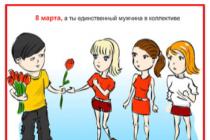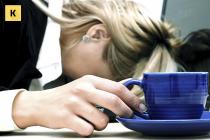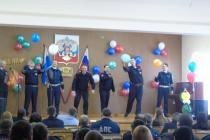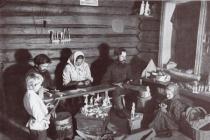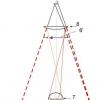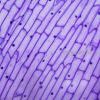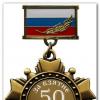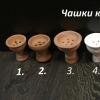Formation professional competencies future specialists Catering.
Production of culinary products modern enterprise a complex technological process, which consists of a series of sequential operations for processing products, preparing dishes and culinary products. Satisfying the needs of society in high-quality and diverse food products, increasing the culture of their consumption by improving production technology, improving quality finished products largely depends on the skill of cooks, on what professional competencies they possess.
The following essential features of competencies have been identified in the scientific literature:
The concept of "competence" refers to the field of skills, not knowledge. “Competence is a general ability based on knowledge, experience, values, inclinations acquired through training. Competence is not limited to knowledge or skills; Being competent does not mean being scholarly or educated.”
The professional qualities of a specialist are very important. They form a future specialist's positive attitude towards his profession and the people with whom he works. Committed to personal growth, professional development, allows you to solve those production tasks that the employer puts before him:
social, determining his interaction with other people;
information related to the receipt and processing of information;
calculation related to the ability to solve professional problems;
operational;
managerial, organizational;
design;
design;
economic, including behavior in the labor market.
Competencies are formed as a result of conscious activity. The acquisition of competencies depends on the activity of trainees. In order to learn how to work, you need to work.
Professional competence- a capacious concept that includes not only professional abilities and skills (labor function within the framework of a position, profession, specialty, qualification), but also the ability to act independently in new situations when solving professional problems.
In our case, the future catering specialist should consolidate and deepen the knowledge gained in the process of study, should be ready to perform production-technological, organizational and managerial, control-technological, experimental and experimental activities; must also possess the theoretical foundations and professional competencies, such as:
Mechanical culinary processing of products; basic techniques;
Methods of thermal culinary processing of products;
Technology of preparation of soups, sauces, dishes and side dishes from cereals, legumes and pasta, vegetables, fish and seafood, meat, meat products, poultry;
Technology for preparing and dispensing dishes from eggs and cottage cheese, cold dishes and snacks from fish, meat and other products, sandwiches, sweet dishes and hot drinks;
Recipes, quality requirements, storage conditions and terms;
Technology of preparation of flour confectionery products;
Technology of preparation of semi-finished products;
Dough kneading and loosening methods;
Technology for the preparation of yeast and yeast-free dough, semi-finished products and products from them;
Ways to decorate pastries and cakes.
Master the practical basics professional activity, namely:
Conduct the technological process of mechanical culinary processing of raw materials;
Prepare meals and culinary products;
To carry out a complete set of dishes and distribution of dishes of mass demand;
Determine the quality of cooked food, prevent and eliminate its possible shortcomings;
Prepare confectionery raw materials for production;
Prepare various types of fillings, syrups, lipsticks, creams, minced meats;
Lead the production process various kinds dough, semi-finished products and products from them;
Decorate confectionery;
Produce piece confectionery, pastries and cakes.
In addition to all this, we must:
understand social and economic importance catering establishments;
- know the rules for storing products, their processing modes, the norms, ratios and sequence of laying products, recipes, rules for operating equipment, sanitary and hygienic requirements for the cooking process, nutritional physiology, the basics of medical and dietary cooking;
Be able to process various products, prepare dishes in accordance with recipes, use special equipment; draw up basic technological maps of dishes, make a calculation;
- have skillsuse of methods for applying professional competencies in practice;
- Our activity requires fine color discrimination, good visual-motor coordination (at the level of hand movements).They must be physically hardy, have a good long-term memory, a three-dimensional and linear eye, and be able to concentrate. You need a subtle sense of time, high sensitivity to shades of smell and taste, reproducing imagination (the ability to look at a recipe, imagine appearance and the taste of the dish), you need to be responsible and honest.
The listed competencies are formed in the course oftheoretical and practical training in college. The first stage includes training and laboratory-practical classes, in which we study not only the technology of preparing various dishes and semi-finished products, but also calculate dishes, draw up menus, draw up technological maps, and learn how to set the table correctly. In the college laboratory there is an opportunity to prepare cold and hot dishes from meat, fish, poultry, dairy products, vegetables, fruits. We gain practical skills from preparing products for cooking to receiving a finished dish.
Early, before entering college for this specialty, i.e. “Cook, confectioner, calculator”, we did not know anything about this profession and had no idea how interesting and useful it would be for us in catering in later life. But for further development in this direction, in order to become a qualified worker, we need to form the professional competencies of a future catering specialist.After all, the formation of professional competencies among students is one of the actual problems currently.
Mastering competencies allows you to solve a variety of problems in everyday, professional, social life. They provide flexible behavior of a specialist in the labor market.
The next stage in the formation of professional competencies can be attributed to practical training, during which it becomes possible not only to observe the organization of the work process in public catering organizations, but also to consolidate professional skills in production. On a personal example, I can talk about the importance of industrial practice, from 10/13/2014 to 11/20/2014. we had an internship at catering establishments. We were introduced to the rules and safety precautions at the enterprise, also familiarized with the structure of the enterprise and with official duties corporate catering specialist. I have mastered the necessary professional competencies, consolidated my theoretical knowledge and skills from industrial training. I participated in the preparation of various dishes. The practice left me only good impressions. The staff welcomed us kindly and answered all our questions. Practice gave me a general idea of future profession and increased interest in learning. A lot of valuable and useful information has been received, which will undoubtedly have a great influence in my future professional activities. . I conducted a small sociological survey of college students and employees base organizations public catering, during which it turned out that representatives of this profession are in great demand in the labor market
Another stage in the formation of professional competencies and motivation for us can be participation in professional festivals and competitions, attending master classes of chefs. Professionals in their field demonstrate to us the peculiarities of preparing complex dishes, unusually beautiful ways of decorating them. For example, in the period from 05/12/2014 to 05/20/2014, we attended a master class, which was conducted by a specialist from Germany to exchange experiences and improve the skills of our students. After such competitions and master classes, we have an even greater desire to move forward, improve our skills and abilities.
List of used literature.
Chebannaya I.A. Theoretical approaches to the definition of professional competencies of SVE specialists // Innovations in education: experience, problems, prospects. . - Stavropol: Litera, 2008. - S. 99-103.
Chebannaya I.A. Formation of professional competencies of a specialist by means of information and communication technologies // Innovations in education: experience, problems, prospects. Mater. 53rd scientific method. conf. SSU "University Science for the Region". - Stavropol: Litera, 2008. - S. 103-105.
Chebannaya I.A. Professional competencies and technologies of their formation in college conditions // Modern educational technologies. Mater. Vseross. scientific and practical. conf. - Tver: TSTU, 2008.
Mirsaetova N. Conditions for the formation of success in the future professional activity: article / N. Mirsaetova // Secondary vocational education. - 2010. No. 3. – p. 61
Prokopiev M. Competence approach in education: article / M. Prokopiev // Secondary vocational education. - 2009. - No. 4. - With. 29.
O. B. Malahinskaya, teacher of disciplines of the professional cycle,
branch of GBPOU Yamalo-Nenets Autonomous Okrug "YaMK" in Labytnangi
Formation of competencies of the future skilled worker in the profession "Cook, confectioner"
GEF NGO introduces a new concept for the education system: competence is a new quality of the subject of activity, which manifests itself in the ability to systematically apply knowledge, skills, values and allows you to successfully resolve various contradictions, problems, practical tasks in a social, professional and personal context. Therefore, professional educational establishments should take into account changes in the characteristics of being, work and the role of a person in a new, technically and informationally saturated reality, instill in the future specialist general and professional competencies. However, the training of a qualified specialist is difficult for a number of reasons, one of which is the gap between theory and practice (experience). Another important reason is the rapid informatization of society, and even completely new, just released textbooks do not keep up with the current ones. this moment material and fade into the background.
From the foregoing, we can conclude that the changes taking place today in education are forcing teachers to think again about the question “what and how to teach?”, And also to look for new approaches, methods and techniques to achieve the goal set by education standards.
I believe that in the lessons of the professional cycle, a personality-oriented approach is very important, because students come to us, often choosing their specialty not yet fully consciously. Affects and age, and not well-established views on their future. One of my main tasks, I consider to interest them in the subject, I strive to ensure that they fall in love with their profession.
New regulatory framework Russian education, namely the new generation of the Federal State Educational Standards, gave additional freedom in solving the problems of forming the content vocational education, organizations educational process, as well as provided the opportunity to build individual trajectories of vocational education. Also, at present, the profession "Cook, confectioner" has undergone fundamental changes: from the "gray" catering walls, it "leaves" into attractive, comfortable cafes and restaurants with a rich set of gourmet dishes.
The development of ethnotourism in Yamal, the opening of new cafes and restaurants makes it necessary to develop and improve the national cuisine.
Taking into account the requirements and requests of employers, additional cooking competencies were introduced into the program of professional modules, as a variable part, taking into account the traditions of the peoples of the Far North.
For graduates to be successful and in demand on modern market labor, I must teach them how to learn. Therefore, in my teaching activities, I use elements of various technologies: differentiated learning (tasks different levels complexity), student-centered learning, information and communication technologies (the use of educational electronic resources by profession, Internet resources, the development of presentations for lessons), integrated lessons, the technology of gaming methods, the technology of project-based learning ( research work), health-saving and gaming technologies, as well as the pedagogy of cooperation.
Within the framework of the educational technologies I use non-traditional forms of lessons: lessons of independent activity, research, problem, lessons-trainings, lessons-seminars. I think the lessons independent work form and develop the mechanisms of independence of students, assert the independent qualities of the individual.
Lessons based on group activities help to teach how to work in a team. Each participant in group activities involuntarily joins in joint work and faces a choice: either to do like everyone else, or to determine their place, role and function in the team. For adolescents seeking self-assertion among their peers, such self-determination in activities is of great importance. Experience shows that group work It is especially effective if the teacher organizes the process of distributing educational tasks and thinks out the technology for discussing them in a team. It is the very process of discussing educational tasks that is perceived as if adults are consulting with students, asking about their attitude to what is happening and listening to their opinion. This situation helps students to purposefully carry out the process of cognition and feel more confident.
The seminar is one of the forms of training sessions that I use quite often. An indispensable requirement for it is the active participation of each student.
At the lesson-seminar, the formation of general educational skills and abilities determined by the program when studying the specified material is revealed, and the student must practically apply knowledge and skills not only in familiar, familiar situations, but also in new situations. I use the lesson-seminar to nurture the independence of students, the formation of the ability to work with reference literature and the development of monologue speech skills.
I believe that through the introduction of elements of these technologies, students develop professional and general competencies:
Understanding the essence and social significance of your future profession;
Organization of own activities, based on the goal and ways to achieve it;
Implementation of the search and use of information necessary for the effective performance of professional tasks;
Skill to work in team.
The result of applying the above technologies is:
Improving the quality of students' knowledge, developing the abilities of each student,
Acquisition of the skill to independently organize their educational activities,
Activation of cognitive activity and creative activity of students,
Formation personal qualities students,
Formation in students of a conscious need for management healthy lifestyle life.
As a result of this approach to teaching, the absolute and qualitative progress in the subjects of the professional cycle remains stable throughout the entire course of study. The results of the state final certification show that the content and quality of graduates meet the requirements of the state educational standard NGO by profession "Cook, confectioner".
As a result of purposeful work, almost all of my graduates are employed in their profession, and some continue to receive education in higher educational institutions.
Bibliography:
1. Ibragimov G. I., Ibragimova E. M., Andriyanova T. M. Learning theory: tutorial/ Ed. G. I. Ibragimova - M.: Humanitarian. Ed. Center VLADOS, 2011.
2. General and professional pedagogy: Textbook for students of pedagogical universities / Ed. V. D. Simonenko.- M.: Ventana Graf, 2005.
3. Federal state educational standard of primary vocational education by profession 260807.01 Cook, confectioner
As the main mechanism designed to ensure the training of qualified mid-level workers with the needs of society and the state, as well as meeting the needs of the individual in deepening and expanding education, professional competence, a competency-based approach in vocational education, its orientation towards the formation of professional competencies are.
Download:
Preview:
Formation of professional competencies in the classroom of educational practice in the profession "Cook, confectioner"
The main mechanism designed to ensure the training of qualified mid-level workers with the needs of society and the state, as well as meeting the needs of the individual in deepening and expanding education is professional competence, a competency-based approach in vocational education, its focus on the formation of professional competencies.
The modern professional school is in dire need of justification and development from theoretical and methodological aspects and adequate technological support for the process of developing the creative potential of the individual, as a factor in its successful social and industrial integration, resources for professional mobility and competitiveness. It's about about the mastery of students with a holistic professional activity from goal-setting to introspection.
It is the list of professional competencies for a specific profession or specialty that is reflected in the new layout of the GEF SVE.
For example, when developing the structure of a professional educational program for SVE for workers in the food industry, it was determined that, in accordance with the requirements professional standard the specialist must demonstrate the ability and readiness, firstly, to plan, organize and control production processes in certain areas (divisions) of the catering enterprise and, secondly, to prepare and decorate complex dishes, bakery and flour confectionery products, taking into account the quality and safety requirements of the process preparation and finished products for various categories of consumers.
To master theseprofessional competenciesthe structure of the educational program includes training modules aimed at developing readiness to complete a set of specific labor functions.
2. Theoretical foundations
It should be emphasized that each module provides for the formationboth professional and general competencies, which include a certain level of readiness to make decisions, use the interpretation of information, etc.
Mastering the set of professional competencies necessary to perform labor functions and constituting training modules becomes the goal of the educational program. Thus, in the structure of the educational standard, professional modules, which include a mandatory amount of knowledge, skills and practical experience necessary to perform various types of professional activities, replace traditional special disciplines.
Modular approach to learning based on on competencies , provides for the development of a modular professional educational program based on the reflection of the requirements of the professional standard in the goals and content of the educational program, which involves changing the goals, content of training and methods of managing development activities competencies.
Implementation of modular educational programs based on competencies requires a fundamentally different approach to the organization of the educational process, the main feature of which is practice-oriented learning and independent work of students.
2.1 Independent work of students in modular programs
Of particular importance is such an organization of independent work, which, giving a personal meaning to the education received, taking into account the level of readiness for independent work, would stimulate the creative forces and abilities of students, actualize the internal cognitive motives of learning, would contribute to the development of self-education skills, the ability to self-development and self-improvement.
A competitive graduate must be independent, mobile, have creative thinking, choose the best solutions in non-standard situations, develop new types of products, etc.
A professional career is the professional formation and development of a person, the main indicators of which are:
professional independence;
professional mobility;
Ability to work in a team.
Independent study work should be understood as any active activity of students organized by the master of industrial training, aimed at fulfilling the set goals in the time specially allotted for this: the search for knowledge, their comprehension, consolidation, formation and development of skills, generalization and systematization of knowledge.
Independent work as a didactic phenomenon is, on the one hand, an educational task designed to achieve certain goals. On the other hand, it is a form of manifestation of the corresponding cognitive activity: memory, thinking, creative imagination when students perform a task in educational practice, which, ultimately, leads them either to obtain a completely new, previously unknown knowledge, or to deepen and expand the scope of action. already acquired knowledge.
Therefore, independent work is a learning tool that:
In each specific situation, assimilation corresponds to a specific goal and task;
Forms the necessary amount and level of knowledge, skills and abilities for the student to solve certain cognitive tasks at each stage of his movement from ignorance to knowledge;
Develops in students a psychological attitude towards independent systematic replenishment of their knowledge and the development of skills to navigate the flow of scientific and social information when solving new cognitive and professional tasks;
Independent work students - an integral part of training, activity students in the process of learning, performed on the instructions of the master of p / o, but without his direct participation. Independent work aims to work out the material covered during the training practice.
Independent work always causes difficulties for students , especially in the first year, when it is necessary to teach students how to set learning goals correctly. For students it is necessary to learn how to memorize the main thing, therefore they need to be taught the techniques of memorization, repetition, the techniques of semantic construction, to develop thinking and the functions of understanding, comprehending, the new on the basis of the old. For example, they know theoretical basis how to prepare a dish, but how to cook them practically needs to be taught.
In view of the fact that independent work is the most important form of the educational process, the master of p / o should emphasize its advantages in the formation of parameters of a qualification characteristic.
Independent extracurricular work of students at the present stage of development of pedagogy acts as an important means of increasing the professional-cognitive and creative activity of future specialists. It is in it that the motivation of students, their purposefulness, independence, self-education and other significant characteristics are manifested. All these characteristics meet the requirements put forward by employers: the ability to work with information, the ability to independently acquire knowledge and systematize it; professional competence; high responsibility and organizational and communication skills.
It should be noted that under« professional competencies"is understood as the ability to apply knowledge, skills for successful activity: the ability to work independently, the ability to take responsibility, the willingness to notice problems and look for ways to solve them, the ability to analyze new situations and apply knowledge for such an analysis. However, it should be noted that there are various definitions of the concept of professional competence”:
2.2 Definitions of the concept of "professional competence"
Definitions: |
|
A.V. Khutorskoy: | “includes a set of interrelated personality traits, set in relation to a certain range of objects and processes, and necessary for high-quality productive activity in relation to them; |
V. Baidenko: | “- this is the readiness and ability to act expediently in accordance with the requirements of the case, methodically and independently solve problems and problems, as well as self-evaluate the results of one’s activities”; |
I.A. Zimnyaya: | “- these are internal, potential, hidden psychological neoplasms of actions, systems of values and attitudes) are revealed in the competencies of a person”; |
T.Yu.Bazarov: | “- these are the requirements of successful activity, formulated in terms of the integral qualities of an individual or collective subject”; |
B.I. Bespalov: | “- these are the requirements of the profession and the system of professional tasks that a person must or can solve (tasks that are within his competence)”; |
V.D. Shadrikov: | “serve to designate the integrated characteristics of the quality of specialist training”; |
G.V. Bezyuleva: | “is a concept that characterizes different areas of human activity, and represents generalized methods of action that ensure the productive performance of professional or other activities”; |
Development professional competenciesfor students in the profession "Cook, confectioner" is impossible without observing the following conditions:
- well-chosen teaching methods, such as:
- reproductive demonstrations;
- problem-search (setting practical and situational tasks);
- simulation methods (analysis of specific production situations and tasks; situational solutions; practical tasks in the process of practice; discussion of the developed options).
- the necessary teaching aids that ensure the optimization of the achievement of goals (for example, the availability of textbooks for the Federal State Educational Standard, the profession "Cook, confectioner", documentation necessary for lessons of educational practice, instruction cards, tests);
- material and technical support of the lessons of educational practice in the profession "Cook, confectioner".
The material and technical base of vocational education is of paramount importance for the formationprofessional competenciesgraduates in demand by employers. So, in the educational culinary workshop, the workplaces of students meet the requirements of labor safety, sanitation, hygiene and fire safety rules. Created and systematized methodological and didactic material for all sections of the professional module. During the internship, all students are provided with individual jobs. Training culinary workshop is completed necessary equipment, tools, utensils, inventory: electric ovens, electric stoves, refrigeration equipment, weighing equipment, etc. Availability of products in accordance with the list academic work for practicing work practices. The educational culinary workshop is equipped with special cook furniture: cabinets, tables, sinks. The equipment of workplaces for conducting educational practice provides for the possibility of acquiring professional skills and skills in accordance withprofessional competencies.
- Passing educational practice;
- Organization of independent work of students in the classroom of educational practice;
- Competence of the master of industrial training.
Only a master of industrial training can ensure the formation of these competencies at a sufficient level. In this regard, the competence model of the master of industrial training of the profession "Cook, confectioner", which includes the following levels, is of particular importance:
- at level 1 the components of the value potential of the personality of the master of p / o are set, he is ready to teach all the skills;
- Level 2 introduced professional and general competenciesindustrial training masters:
- orientation to professional activity;
- self-education, advanced training;
- motivational and organizational orientation of the interaction of the master with the students.
- 3 level model is needed to implementprofessional activity
- Organization of educational production process;
- Pedagogical support for a group of students in class and extracurricular activities;
- Methodological support of the educational and production process;
- Participation in the organization production activities. Participate in the development and implementation of technological processes, develop and draw up technological documentation.
- Performing work by profession "Cook, confectioner".
Thus, based on the above, we can come to the following conclusion:
- there is no consensus among the pedagogical community on the question of the conceptprofessional competencies;
- the main conditions for the formation of professional competencies are: correctly selected teaching methods, teaching aids, material and technical support for the lessons of educational practice.
3. Practical foundations for the formation of professional competence
Becoming professional competenceby profession, in industrial practice for 3 years of training, in other words, these are any forms of training related to the involvement of students in production activities.
The students of our technical school, led by the masters of industrial training, organize the work of the technical school buffet, for this you need to prepare various types of dough early in the morning (yeast, biscuit, shortbread), prepare a variety of fillings (cabbage, potatoes, rice with minced meat, jam), mold products, give distance and bake these products in the oven. The implementation of all baked products also falls on the shoulders of students. In the process of such production activities, students are very well oriented in all educational services: they know well the technology of preparing various types of dough, accurately form products from yeast dough, know the temperature conditions for baking yeast products, biscuit dough, shortcrust pastry, show flexibility and competitiveness
After graduating from the technical school, our graduates independently work at bakery baking enterprises:
At the enterprises of the Sursky district;
At the enterprises of the Ulyanovsk region;
outside the area;
Professional independence – the ability to understand the requirements for the activities of the profession, the ability to independently plan, execute, make decisions and control the work performed.
Professional mobility. And mobility as an initial concept (from Latin mobiles - “mobile” means mobility, readiness to quickly complete tasks. It follows that professional mobility is the readiness and ability to quickly change the functions performed, as well as specialties within the same profession (cook, confectioner , costing agent, waiter), the ability to quickly master new professions or changes in them that arise under the influence of technical transformations. In the psychological dictionary, it is defined in the same way as the ability and willingness of a person to quickly and successfully master new technology and technology, to acquire the missing knowledge and skills that ensure the effectiveness of new professional activities.
For self-disclosure and self-realization of internal potentialities, students have an extensive additional literature which promotes self-disclosure and self-realization:
Literature on the practical preparation of "Russian National Dishes" in color illustrations;
Literature on banquet thematic (anniversary, New Year, celebration, March 8, children's table, etc.) table setting. With the necessary tablecloths, crockery and cutlery;
Fourchette table decoration - with crockery, cutlery and tablecloths;
Available: round table, square table, buffet table, with elongated legs for serving;
The ability to cooperate is developed (student - master of industrial training, student - student, where students learn from each other, learn from the experience of experienced masters of p / o).
What should the student be able to work with the master
industrial training
p/p | 1. Professional qualities: |
Knowledge of all technological operations |
|
Ability to complete the process |
|
Professional Competence |
|
creative work |
|
2. Time distribution: |
|
Operation time planning |
|
Distribution of time for the technological process of cooking |
|
Time for creativity |
|
3. Communicative qualities |
|
Ability to work actively |
|
Use working documentation |
|
Troubleshoot work |
|
Get your recognition |
|
Listen and convince yourself |
Educational practiceplays a decisive role in shapingprofessional competenciesstudents, which consists in specific features in terms of goal setting, content, logic, didactic principles, organizational forms, methods and teaching aids.
Priority for educational practice is the formation of professional skills of students before the formation of professional knowledge;
Exercise remains the leading method of educational practice;
The main means of educational practice is productive labor students;
An inextricable link between theory and practice is being carried out;
There is a combination of training in specially organized conditions and in real production conditions.
Thanks to these features, there is a consistent implementation of the goals of educational practice in the formationprofessional competencies students:
Professionalism (working out the correctness and accuracy of labor actions, achieving a certain speed of their implementation, developing skills and abilities);
professional independence;
professional mobility.
The main form of organization of educational practice is class . A characteristic feature of educational practice is the purposeful educational and production activity of students throughout the lesson. To do this, the entire course of the lesson is thought out to the smallest detail, its plan is developed, the necessary devices are prepared, the completeness and serviceability of the necessary technical equipment, the activity of students at each stage is determined and specified training session. It is expedient to develop and use instructional and technological maps, test tasks. These tasks encourage students to test their knowledge, teach them self-control, point them to gaps, force them to turn to technical literature, to a master of industrial training, to a friend who is stronger in studies.
I practically show how to complete tasks at a working and slow pace, I accompany the demonstration with an exhaustive explanation. Telling and showing, I teach my pupils to correctly perform labor techniques and operations, while observing the rules of safety, industrial sanitation, sanitation and hygiene, acquaint them with the experience of advanced workers, with new technology, instill love for the chosen profession, show the elements creative work. A clear, accessible, disposable explanation, a clear demonstration of the methods of performing cooking operations, feasible tasks - all this allows students to successfully master special skills and abilities, gain confidence in their own abilities and capabilities. This is important for a good psychological and emotional state of pupils, for the development of independence, mobility, and creative abilities. All in all, this works forprofessional competence.
The profession "Cook, confectioner" is currently one of the most sought-after professions in the country, because individual entrepreneurship Catering, private business, restaurant, roadside business, opens a large number of catering points: cafes, mini-restaurants, snack bars, canteens, dumplings, pizzerias, bistros, etc. Everywhere we need qualified specialists in their field who are competitive in the modern labor market, meet the requirements of employers, be mobile, sociable, able to adapt in all conditions, beprofessionally competent.
Effective activity:
60% of graduates get a job according to their professional purpose;
17% of graduates go on to study further in their field;
5% of graduates are engaged in private individual entrepreneurship (they opened workshops and are engaged in baking and selling yeast and confectionery products);
10% of graduates get a job not according to their profile;
Every day there is baking of products from yeast dough and confectionery for the buffet, where money is earned from the sale of all baked goods, which are handed over to the accounting department;
Participation in annual competitions professional excellence by profession "Cook, confectioner", both a master of industrial training and a student;
Art pro rally, etc.
I manage the life of the student team, students acquire tremendous experience in communication, research and search activities, experience in creatively solving problems related to vocational training, form professional culture And competence.
For quality performance managerial functions I have practical skillsprofessional competencies
Problematic issuesprofessional competence, they form the foundation of creative thinking:
What should be done if the color of the borscht turned out to be not saturated, not bright?
If mashed potatoes are too salty when cooking?
If the cutlets are very overcooked? Etc.
These influences are provided by the creation of situations of intellectual difficulty in the learning process - problem situations and their resolution. They are necessary condition development of thinking of students and emotional means in the learning process.
The principle of creating problem situations:
1. Leading the trainees to the contradiction, with a proposal to find a way to resolve it themselves (if the biscuit turned out to be settled, dense during baking);
2. Presentation of points of view on the same question (breeding with broth of hot, flour sauteing 1 student slowly breeds, 2 student breeds quickly and immediately);
3. An offer for trainees to consider the dish from different positions (client, cook, confectioner, costing compiler, cafe director);
4. Encouragement of trainees to make comparisons, generalizations, conclusions from current situations (prepare dishes from quality products and what will happen if some of the products are not entirely benign).
In this case, given great attention on the professional mental activity of students.
There is a directed creation of special situations to search for errors. Based on this idea, the method of relying on errors is built.
cognitive errorscommitted in the process of evolution of knowledge, they are objectively due to the incompleteness and limitation of knowledge:
For example, in the instructional-technological map, one minor error is specially provided for, along the way technological process when preparing cabbage soup from sauerkraut, the sugar tab is not indicated, students should notice this and, in the course of activities, cope with this operation in the right place;
Cognitive errors are grouped into a special group and are further used as one of the learning tools. For example, when preparing yeast dough, the following mistakes should not be made:
So that the fermentation process goes on for more than 3.5 - 4 hours;
It is impossible to do 4 - 5 punches during the fermentation of the dough;
You can not add oil with all other components at the same time;
When preparing shortcrust pastry, there is also a whole group of unacceptable errors;
Why you can not knead the dough in a room with a high temperature;
What happens if the dough kneading process goes on long time etc.
Of particular interest among the mistakes are the mistakes made in professional activities, the analysis of which allows organizing a deeper and more conscious assimilation of vocational training.
3.1. Creative activity students as the main form of professional competence
In our work, a creative attitude to everything that happens is an integral part of educational process.
Creativity should begin with the first lessons of educational practice. Proper cutting of vegetables is already the beginning of creativity. I teach students to see the difference:
In the right and wrong sizes of vegetables;
See the boiled vegetables;
Appearance;
consistency.
I show a dish with the right and wrong cooking technology, I focus on the culture and aesthetics of cooking, the students see the difference and, very importantly, agree with me in this direction.
When preparing the first courses, I teach students the correctness and observance of the cooking technology, and when this process is completed, here you can already move on to a creative initiative. For originality and uniqueness of taste, you can add something of your own, from yourself, for example,
Cinnamon, cloves;
Sorrel, viburnum;
wild onion;
orange and lemon zest;
Fresh berries.
For fantasy and creativity, I suggest unlimited possibilities, of course, within a reasonable range of what can be added to prepare 1 dish. I emphasize that this is already the beginning of your creativity, perhaps it will be your personal dish, perhaps your friends and family will be able to appreciate it. I show how aesthetically 1 dish should be decorated - strictly in the middle of the plate, sour cream is placed in an even circle, neatly chopped greens are sprinkled on it, such a dish looks very aesthetically pleasing and appetizing.
You can get creative with even the simplest of dishes. Milk soup, many do not eat milk soups, I offer such creativity when preparing this soup:
Small vermicelli is heated in a pan to a slightly brownish hue;
During cooking it in milk, the taste and aroma become specific;
When serving, strawberries, raspberries or softened dried apricots are placed in the middle.
This simple dairy dish turns into a dessert dish with berries. The students, in turn, offer their options for making milk soup, I really like this direction of the students, when they embark on a creative search, this is the beginning, but it is important, it will gradually turn into professionalism and creativity.
3.2. Requirements of employers for the training of specialists in the field of public catering
Analyzing the development of the public catering sector, it was revealed that today the success of a restaurateur depends on the presence of good management, impeccable service, interesting interior and reasonable prices, the requirements for production and service personnel catering establishments, competition among them has intensified, new criteria for assessing the quality of culinary products have appeared. In this regard, it became necessary to gradually improve and expand knowledge about national cuisine, wines, methods of making coffee and drinks.
Basic theoretical and practical training allows you to independently apply skills and abilities in professional activities;
Possession of business communication skills;
Ability to master new technologies;
Ability to act in standard and non-standard situations;
Show readiness to change the nature and content of labor;
Creation of a model of a graduate of an educational institution in accordance with the requirements of the employer;
Formation intrinsic motivation vocational training;
Building learning on a reflective basis.
4. Conclusion
In the studies of A.L. Zhokhov, N.M. Spirin, R.N. Perlova, V.V. Temkin, such diagnostic indicators are considered separatelyprofessional competenceas questions of the formation of interest in the chosen profession, professional independence, collectivism, tolerance, creative thinking, etc. I am interested in the problem of development in the complex, with all its indicators for students in accordance with the definition chosen as a target in the activities of pedagogical workers .
In my opinion, under the conditions market economy high-quality solution of development problemsprofessional competencefuture workers and specialists will ensure their successful and professional social adaptation. That's what caused the interest in the problem of developmentprofessional competence students:
The essence and structure of the conceptprofessional competence, given her working definition in relation to the category of students in an institution of secondary vocational education;
Describes the development process of indicatorsprofessional competence: interest in the profession, professionalism, professional independence and mobility;
The organizational and pedagogical conditions for the formationprofessional competencestudents in educational institutions of secondary vocational education.
Thus, analyzing the performance indicators for the previous 5 years, we can conclude that the training practice in the formationprofessional competencestudents are of great importance, since in the classroom they acquire the practical skills that are so necessary for a competitive professional in modern conditions when it is beneficial for employers to have a highly qualified, mobile, well-mannered, adapted employee in their staff, with knowledge of the technological process, able to make decisions in standard and non-standard situations, owning modern technology.
5. List of used literature
1. Bazarov T.Yu. Author's technologies for the development of competency models - Baidenko V. Competences in vocational education Bezyuleva G.V. Professional competence of a specialist. Bespalov B.I. Correlation between the concepts of "competence" and "competence" in the activity psychology of a person Gaineev E.R. Component-based approach in the implementation of the Federal State Educational Standard //Methodist. - No. 8. - 2013. - P.44.
2. Law 273-FZ "On Education in the Russian Federation" 2015 new 273-FZ - [Zimnyaya I.A. Key competencies- a new paradigm of the result of education Kozyreva O.A. Professional pedagogical competence of a teacher: phenomenology of the concept // Bulletin of the Tomsk State Pedagogical University. - The concept of modernization of Russian education for the period up to 2010 approach - [Electronic resource] - Access mode. - URL: http://sinncom.ru/conten.
3. The concept of long-term socio-economic development of the Russian Federation for the period up to 2020 - [Electronic resource] - Access mode. - URL
4. Anfimova N.A., Tatarskaya L.L. Cooking "cook, confectioner" vocational education textbook, 2006
5. Bezrukova V.S. Dictionary of new pedagogical thinking (text) Yekaterinburg.
6. Bespalko V.P. Components of pedagogical technology (text) / Bespalko V.P. - M, Pedagogy, 1989 - 190 p.
Educational activity of the teacher (Text): textbook for students. higher educational institution, I.A. Kolesnikova, N.M. Borytko, S.D. Polyanov, N.L. Selivanova. - Academy, 2005. - 336 p.
7. The concept of modernization of Russian education until 2020, 6. New pedagogical research (Text),
8. Malenkova L.I. Education in a modern school (Text) - Pedagogical Society of Russia: Noosphere,
9. Modern technologies training in educational institutions of secondary vocational education, library of the federal program for the development of education, "New Textbook Publishing House", 2004.
Annex to project No. 1
The list of general and professional competencies set by the Federal State Educational Standard for the profession "Cook, confectioner" and supplemented by employers:
general competencies including the ability to:
OK 4. Search for information necessary for the effective performance of professional tasks.
OK 5. Use information and communication technologies in professional activities.
OK 6. Work in a team, communicate effectively with colleagues, management, clients.
Employer requirement:
OK 11. Show a culture of communication, oral literacy.
A graduate who has mastered the OBOR NGO must have professional competencies corresponding to the main types of professional activity:
PC 1. Cooking dishes from vegetables and mushrooms.
PC 1.1. Perform primary processing, cutting and shaping of traditional types of vegetables and fruits, preparation of spices and seasonings.
PC 1.2. Prepare and decorate main and simple dishes and side dishes from traditional types of vegetables and mushrooms.
PC 2. Cooking dishes and side dishes from cereals, legumes and pasta, eggs, cottage cheese, dough.
PC 2.1. Prepare grain products, fats, sugar, flour, eggs, milk for cooking and side dishes.
PC 2.2. Prepare and decorate cereals and side dishes from cereals and rice, simple dishes from legumes and corn.
PC 2.3. Prepare and decorate simple pasta dishes and side dishes.
PC 2.4. Prepare and decorate simple dishes from eggs and cottage cheese.
PC 2.5. Prepare and decorate simple flour dishes from dough with minced meat.
PC 3. Cooking soups and sauces.
PC 3.1. Prepare broths and decoctions. PC 3.2. Prepare simple soups.
PC 3.3. Prepare individual components for sauces and sauce semi-finished products.
PC 3.4. Prepare simple cold and hot sauces.
PC 4. Cooking fish dishes.
PC 4.1. To process fish with a bone skeleton.
PC 4.2. To prepare or prepare semi-finished products from fish with a bone skeleton.
PC 4.3. Prepare and decorate simple fish dishes with a bone skeleton.
PC 5. Cooking dishes from meat and poultry
PC 5.1. Prepare semi-finished products from meat, meat products and poultry.
PC 5.2. Processing and preparation of basic semi-finished products from meat, meat products and poultry
PC 5.3. Prepare and decorate simple dishes of meat and meat products.
PC 5.4. Prepare and decorate simple poultry dishes.
PC 6. Cooking cold dishes and snacks.
PC 6.1. Prepare sandwiches and deli in portions.
PC 6.2. Prepare and decorate salads.
PC 6.3. Prepare and decorate simple cold appetizers.
PC 6.4. Prepare and decorate simple cold dishes.
PC 7. Cooking sweet dishes and drinks.
PC 7.1. Prepare and decorate simple cold and hot sweet dishes.
PC 7.2. Prepare simple hot drinks.
PC 7.3. Prepare and serve simple cold drinks.
PC 8. Preparation of bakery, flour and confectionery products.
PC 8.1. Prepare and arrange simple bakery products and bread.
PC 8.2. Prepare and decorate basic flour confectionery.
PC 8.3. Prepare and decorate cookies, gingerbread, gingerbread.
PC 8.4. Prepare and use in the design of simple and basic finishing semi-finished products.
PC 8.5. Prepare and decorate domestic classic cakes and pastries.
PC 8.6. Prepare and decorate fruit and light fat-free cakes and pastries.
Employer requirement:
PC 9. Prepare modern European dishes, trendy Italian dishes (pizza and others), Ukrainian, Caucasian and other national cuisines (Ukrainian borscht, dumplings, dolma, chakhokhbili and others), brew coffee according to various recipes (espresso, ristretto, franc -coffee, cappuccino, maccnatto, Turkish, Neapolitan, and others)
Annex to project No. 2
The structure of the portfolio of students of SBEI NPO PL No. 48
A Summary:
Full Name |
Date of Birth |
Place of Birth |
Home address |
Telephone |
Educational institution |
Educational institution address |
Study group Learning indicators |
Information about parents |
Mugs, sections |
Computer skills (user level) |
Favorite subjects |
Hobbies (sports, music, art etc.) Life plans for 2-3 years |
Portfolio creation period (start and end date)
B Portfolio of documents:
Individual trajectory of the formation and development of PC and OK in the profession "Cook, confectioner"
Competencies | Timing | Base | Type of control | Rep. teacher | Grade |
Awards for academic excellence
Level | year | Name of the letter | points |
Participation in the Olympiads
Level | year | item | result | points |
Participation in scientific and practical conferences
Level | year | item | Name | result | points |
Participation in events and competitions within the framework of additional education
Level | year | event title | nomination | result | points |
From Portfolio
Level | year | Name | item | result | points |
D Review Portfolio
level | year | question | Title of the document | points |
Total points:
Individual trajectory of the formation and development of PC and OK in the profession "Cook, confectioner" of the student (example)
Competencies | Timing | Base | Type of control | Rep. teacher | Grade |
Professional competencies | |||||
PC 1. Cooking dishes from vegetables and mushrooms. | 01.09.1 | P / o lessons - | Exam. Interim certification. | P / o master | |
PC 2. Cooking dishes and side dishes from cereals, legumes and pasta, eggs, cottage cheese, dough. | 01.12.12. – 27.02.13. | P / o lessons - Educational culinary workshop GBOU NPO PL No. 48. Optional "Laboratory of taste" Training practice in the educational cafe "On Ozernaya" GBOU NPO PL No. 48, Internship in "Birch Grove", Tver, Moscow highway, 14. | Exam. Interim certification. | P / o master | |
PC 3. Preparation of soups and sauces. | 01.03.13. – 30.05.13. | P / o lessons - Educational culinary workshop GBOU NPO PL No. 48. Optional "Laboratory of taste" Training practice in the educational cafe "On Ozernaya" GBOU NPO PL No. 48, production practice in "Birch Grove", Tver, Moscow highway, 14. | Exam. Interim certification. | P / o master | |
PC 4. Cooking fish dishes. | 01.09.13. – 30.10.13. | P / o lessons - Educational culinary workshop GBOU NPO PL No. 48. Optional "Laboratory of taste" Training practice in the educational cafe "On Ozernaya" GBOU NPO PL No. 48, production practice in "Birch Grove", Tver, Moscow highway, 14. | Exam. Interim certification. | P / o master | |
PC 5. Cooking dishes from meat and poultry | 01.11.13. – 30.12.13. | P / o lessons - Educational culinary workshop GBOU NPO PL No. 48. Optional "Laboratory of taste" Training practice in the educational cafe "On Ozernaya" GBOU NPO PL No. 48, production practice in "Birch Grove", Tver, Moscow highway, 14. | Exam. Interim certification. | P / o master | |
PC 6. Preparation of cold dishes and snacks. | 11.01.14. – 27.02.14. | P / o lessons - Laboratory "Profi" Training practice in the educational cafe "On Ozernaya" GBOU NPO PL No. 48, production practice in "Birch Grove", Tver, Moscow highway, 14. | Exam. Interim certification. | P / o master | |
PC 7. Preparation of sweet dishes and drinks. | 01.03.14. – 30.05.14. | P / o lessons - Educational culinary workshop GBOU NPO PL No. 48 Laboratory "Profi" Training practice in the educational cafe "On Ozernaya" GBOU NPO PL No. 48, production practice in "Birch Grove", Tver, Moscow highway, 14. | Exam. Interim certification. | P / o master | |
PC 8. Preparation of bakery, flour and confectionery products. | 01.09.14. – 30.05.15. | P / o lessons - Educational bakery and educational confectionery shop GBOU NPO PL No. 48 Laboratory "Profi" Training practice in the educational cafe "On Ozernaya" GBOU NPO PL No. 48, production practice in "Birch Grove", Tver, Moscow highway, 14. | Exam. Interim certification. | P / o master | |
PC 9. Cooking modern dishes of European cuisine, CIS countries, Caucasian and other national cuisines | 01.09.12. – 30.05.15 | Optional courses GBOU NPO PL No. 48 "European standard", "National cuisine". Training practice in the educational cafe "On Ozernaya" GBOU NPO PL No. 48, production practice in "Birch Grove", Tver, Moscow highway, 14. | Exam. Interim certification. | Teacher Teacher | |
General competencies | |||||
OK 1. Understand the essence and social significance their future profession, to show a steady interest in it. | 01.09.12. – 30.05.13. 01.09.13. – 30.05.14. 01.09.14. – 30.05.15. | Thematic cycle of class hours "My choice is the profession" Cook ". Thematic cycle class hours“The profession of a cook is interesting!” Lessons of general education, special disciplines, p / o. Thematic cycle of class hours. Round tables with alumni and employers. Lessons of general education, special disciplines, p / o. | Oral presentations. Oral presentations. Accumulative point system. Oral presentations. Accumulative point system. | P / o master Teachers and masters of p / o. | |
OK 2. Organize their own activities, based on the goal and ways to achieve it, determined by the head. | 01.09.12. – 30.05.15. |
Lessons of general education, special disciplines, p / o. Training practice in the educational cafe "On Ozernaya" GBOU NPO PL No. 48, production practice in "Birch Grove", Tver, Moscow highway, 14. | Oral presentations. Accumulative point system. | P / o master Head of Marketing Service. Teachers and masters of p / o. Employers. | |
OK 3. Analyze work situation, carry out current and final control, evaluation and correction of their own activities, be responsible for the results of their work. | 01.09.12. – 30.05.15. | Thematic cycle of class hours "Corporate training". P / o lessons. Training practice in the educational cafe "On Ozernaya" GBOU NPO PL No. 48, production practice in "Birch Grove", Tver, Moscow highway, 14. Laboratory "Researcher", elective "Laboratory of taste" | Oral presentations. Accumulative point system. | P / o master Head of Marketing Service. Teachers and masters of p / o. Head of the laboratory "Researcher", Employers. | |
OK 4. Search for information needed | 01.09.12. – 30.05.15. |
Thematic cycle of class hours "Corporate training". Lessons of general education, special disciplines, p / o. | Oral presentations. Accumulative point system. | P / o master Teachers and masters of p / o. | |
for the effective performance of professional tasks. | 01.09.12. – 30.05.15. | Laboratory "New Information Technologies". Lessons of general education, special disciplines, p / o. | Oral presentations. Accumulative point system. | P / o master Teachers and masters of p / o. Head of the NIT laboratory | |
OK 5. Use information and communication technologies in professional activities. | 01.09.12. – 30.05.15. | Laboratory "New Information Technologies". Lessons of general education, special disciplines, p / o. | Oral presentations. Accumulative point system. | P / o master Teachers and masters of p / o. Head of the NIT laboratory | |
OK 6. Work in a team, communicate effectively with colleagues, management, clients. | 01.09.12. – 30.05.15. | Lessons of general education, special disciplines, p / o. Thematic cycle of class hours "Corporate training". Training practice in the educational cafe "On Ozernaya" GBOU NPO PL No. 48, production practice in "Birch Grove", Tver, Moscow highway, 14. Sports events of the Volleyball section | Oral presentations. Accumulative point system. | P / o master Teachers and masters of p / o. Head of the NIT laboratory, employers | |
OK 7. Prepare the production facility for work and maintain its sanitary condition. | 01.09.12. – 30.05.15. | P / o lessons. Training practice in the educational cafe "On Ozernaya" GBOU NPO PL No. 48, production practice in "Birch Grove", Tver, Moscow highway, 14. | Oral presentations. Accumulative point system. | Teachers and masters of p / o. Employers | |
OK 8. Perform military duty, including with the application of acquired professional knowledge (for boys). | 01.09.12. – 30.05.15. | OBZH lessons. | Oral presentations. Accumulative point system. | OB teacher, Leaders creative group "Civil-patriotic education", elective "Conscript" | |
OK 9. Master new production equipment. | 01.09.12. – 30.05.15. | P / o lessons. Training practice in the educational cafe "On Ozernaya" GBOU NPO PL No. 48, production practice in "Birch Grove", Tver, Moscow highway, 14. Laboratory "Profi" | Oral presentations. Accumulative point system. | P / O masters, employers | |
OK 10. Conduct research aimed at optimizing the production process and experiment with finding and compiling new recipes for dishes. | 01.09.12. – 30.05.15. | laboratory "Profi", Laboratory "Researcher" | Oral presentations. | Heads of the laboratory of taste, laboratory "Profi", laboratory "Researcher" | |
OK 11. Show a culture of communication, literacy of oral speech. | 01.09.12. – 30.05.15. | Lessons in Literature and the Russian Language. A cycle of thematic class hours "Corporate training". Sports events section "Volleyball". Interaction in the educational process. | Oral presentations. Accumulative point system. | Teacher of Russian language and literature, master of p / o, deputy director for UVR |
Annex to project No. 3
A cook is a specialist who prepares food for catering.
The main goal of the cook's work is to prepare food according to the recipe in compliance with the cooking technology, which must have good taste and beautiful appearance.
- Chef- This is, first of all, the head of production. He is engaged in drawing up orders, receives food from the warehouse, monitors the quality of goods and the volume of deliveries. What will be on your menu today - only the chef decides, taking into account the wishes of consumers. Tasks for junior chefs and other employees are also distributed by the chef. This person monitors whether sanitary requirements to cooking, controls the proportions of raw materials for dishes. The chef regulates the employees' output to work according to the schedule drawn up by him, and also keeps a record of products, draws up reports and implements rationalization proposals aimed at improving labor activity.
- Pastry chef. Prepares confectionery products of all kinds. Cake, roll, cupcake and pastry are the work of a pastry chef. He is able to prepare any filling, beat a delicious cream, roll out the dough. From chocolate, fruits and nuts, such chefs create masterpieces. They are also engaged in the manufacture of semi-finished products, they can skillfully determine the weight of the finished product.
- Chef-technologist. Manages the organization of the entire process of procurement of raw materials. He is responsible for quality control, calorie content of the daily food intake, preparing menus and providing price lists. Distributes tasks between a team of chefs, creates branded recipes with technological maps. Provides cooks with briefings and maintains documentation. He is responsible for accounting for basic materials, goods and cooked food.
There are different chefs: a chef, a baker, a cook on a ship, a confectioner, a sushi chef.
Cooking profession
The roots of the craft go back to those distant times, when people learned how to make fire and fry raw meat and fish on it. Delicious food was especially appreciated by the noble people of Ancient Rome and Greece.
In the 17th century in Rus', skillful cooks were engaged in cooking, and the 19th century is famous for its cooking schools. In the annals, one can find references to the Magi, who are still considered the first cooks. Say what you like, but cooks have been valued at all times. The need for qualified specialists today dictates catering business making the profession of a cook even more in demand.
Worldwide The 20th of October chefs celebrate their professional holiday - "Cook's Day".
Advantages and disadvantages
The profession of a cook has a number of advantages:
- there is scope for creativity;
- a qualified cook will not be left without work;
- decent income;
- the opportunity to cook delicious and healthy food for your loved ones, friends, loved ones.
In the culinary field, chefs face certain difficulties:
- it’s hard to be on your feet throughout the day, and even perform physical activity, lifting weights;
- lost vigilance, as a result - received a cut or burn;
- the need to cook several dishes in parallel leads to fatigue of the whole organism by the end of the work shift.
Requirements for the profession of a cook
- When hiring a culinary specialist, a recruiter, first of all, the education of a specialist is of interest. People with secondary education have every chance of getting a job.
- The employer wants to take on his team a person who would understand the recipe for cooking, own the technology for the production of culinary products and semi-finished products.
- The applicant must understand the compatibility of products, their shelf life and the results of cooking.
- The cook is obliged to navigate the labeling of the raw materials used, to possess merchandising skills.
- Know the basics of proper nutrition and how to prepare dietary meals.
- A qualified specialist should be able to determine the quality of products by smell.
People who follow innovations in the field of cooking are appreciated.
Job Responsibilities
Wherever you go labor activity, but if your profession is a cook, then you must:
- receive products;
- observe the general technology of cooking;
- use kitchen utensils correctly;
- ensure proper accounting and storage of raw materials;
- cook a dish prescribed in the menu;
- know the caloric features of products and monitor their expiration date;
- maintain cleanliness and order in the workplace.
The main task of the cook- prepare various dishes, decorate them, develop new own recipes.
Responsibility of the cook
The Culinary Specialist is responsible for:
- compliance with safety standards;
- the quality of the prepared products;
- cooking sequence;
- output portion weight.
The scope of responsibility of the cook is determined by the employer of the organization, who has the right to contribute to job description necessary amendments.
Powers of the cook
The qualified person is authorized to:
- interact with related organizations and their subdivisions;
- make decisions and give orders in the event of force majeure circumstances by the nature of their activities;
- take part in the inventory.
The chef has the right to act within his competence.
Features of the profession of a cook
become good qualified specialist not given to everyone. First of all, a cook must love his job, have imagination and have creative potential. Talented, organized, accurate and attentive to details people become chefs.
The main feature of the profession of a cook- a very developed taste perception and a subtle sense of smell, as well as a good memory.
Professional skills and abilities of the cook
A qualified person must learn:
- properly handle kitchen utensils;
- cook strictly according to the recipe;
- perform food processing;
- determine the quality of raw materials and additional components provided for work;
- skillfully arrange a ready-to-eat product;
- determine the value of the prepared dish.
Preference is given to cooks who know how to use production equipment and equipment, as well as follow the technology for preparing flour, confectionery and other types of products.
Personal qualities
A good cook has the following character traits:
- the presence of olfactory and tactile sensitivity, a developed eye, rich imagination;
- activity, responsibility, endurance, well-developed hand motor skills.
A chef who is guided by courage and ingenuity can already be called a professional, because not everyone is able to create something worthwhile and present their dishes to the judgment of strict connoisseurs.
Chef career
You can get a job as an assistant cook in your student years. You have to do a lot of dirty work: clean, clean, cut, wash. The main thing is to present yourself well. Then everything will go by itself: simple dishes will gradually not be of interest to you, your knowledge and experience will improve every day. Over time, you will be able to increase your qualifying category, and when you reach the sixth, you will become a contender for the position of the chef.
Having studied all the subtleties of the craft, you can safely open your own restaurant business.
Cook's work places
- The service sector is gaining momentum today, which means that chefs are needed in restaurants and bars, cafes and shopping and entertainment establishments.
- You need to cook food in kindergartens and schools, workers' canteens, hospitals.
- Working as a personal chef in a family of wealthy people is no less prestigious than cooking for a chic restaurant.
A good chef is in demand in any industry and will never be out of work.
earnings
How much you will earn as a chef depends on many factors.
The owners of popular establishments, in order to entice the best professionals, do not offend chefs and are ready to pay good money for their work. A lot also depends on the location of the institution and pricing policy kitchens.
Of course, if you are cooking for budget organizations, schools or canteens, then count on big income not worth it. Lots of work, lots of responsibility, but little pay. Well, if you get $500 in your hands. IN major cities usually the income is $200 higher.
Average wage chef is 800 dollars. The higher the rank, the higher the income.
Cook education
To become a chef you need to study, study and study again.
- If there is no education, you will have to work hard at the hardest jobs.
- More ambitious candidates may start by learning from the assistant chef of a well-known restaurant. You will need to do all the same dirty work, but there is a bonus - at the same time you will acquire skills and work experience. If you are lucky, you may be offered to study abroad or at a good culinary school.
- You can learn to cook professionally after graduation cooking courses or cooking courses where you will learn Italian cuisine or become a sushi master.
- Good knowledge is provided by specialized secondary specialized educational institutions, but aerobatics is a completed Institute of the Food Industry with a degree in "cook-technologist".
The secrets of haute cuisine can be mastered by learning from the chefs of Michelin-starred restaurants of world famous international culinary schools. Special training programs have been developed here that will be useful for both a novice and an experienced chef.
Alexander Yurievich
Director of recruitment agency





